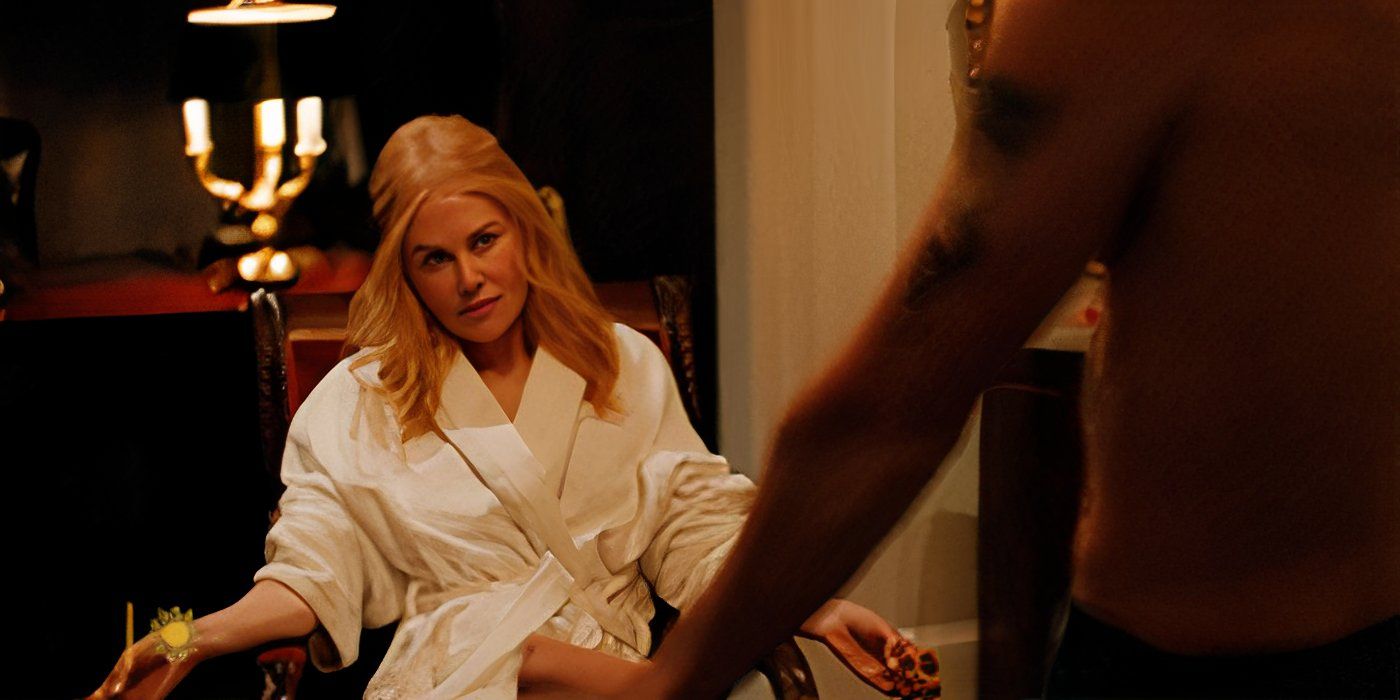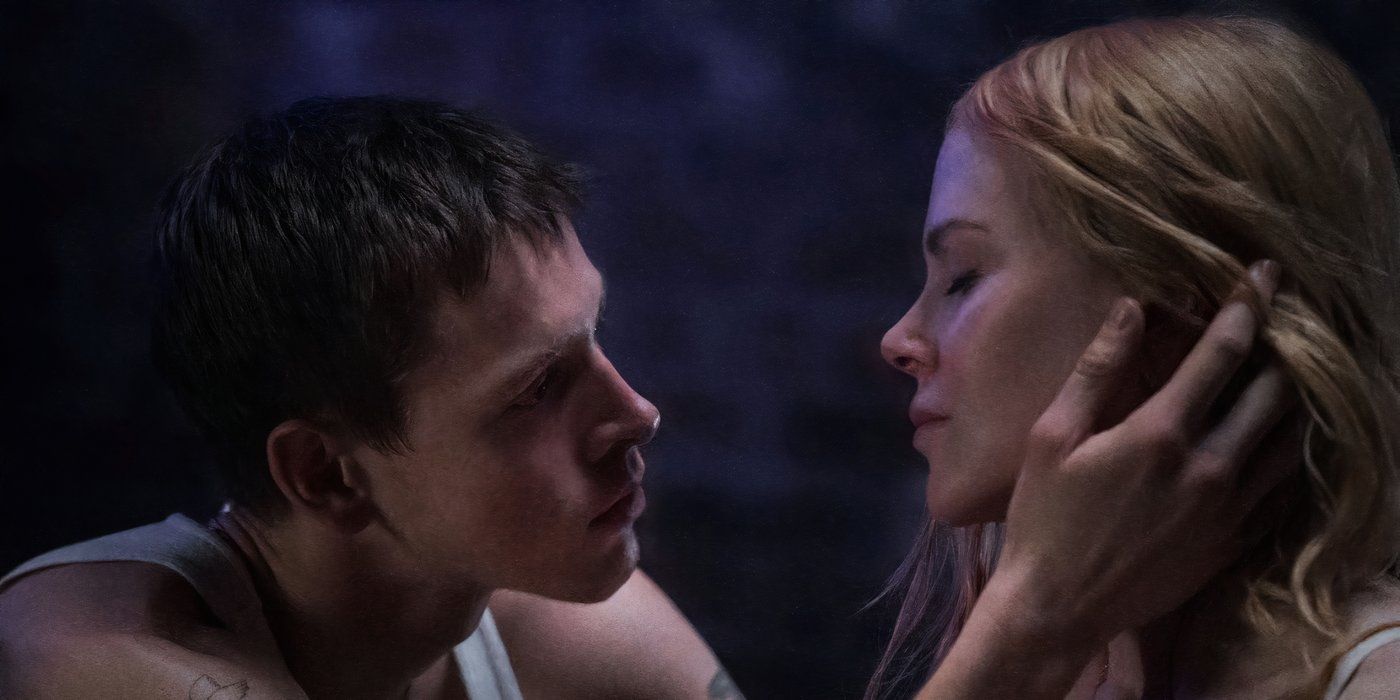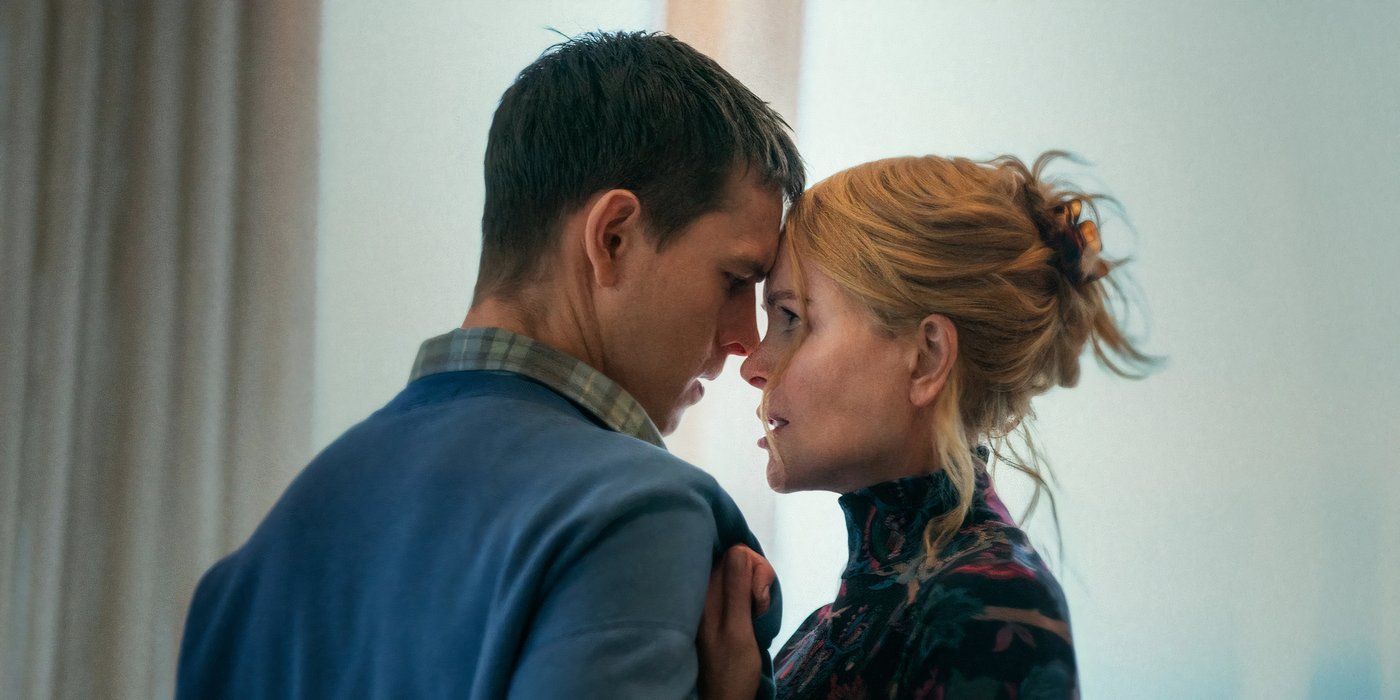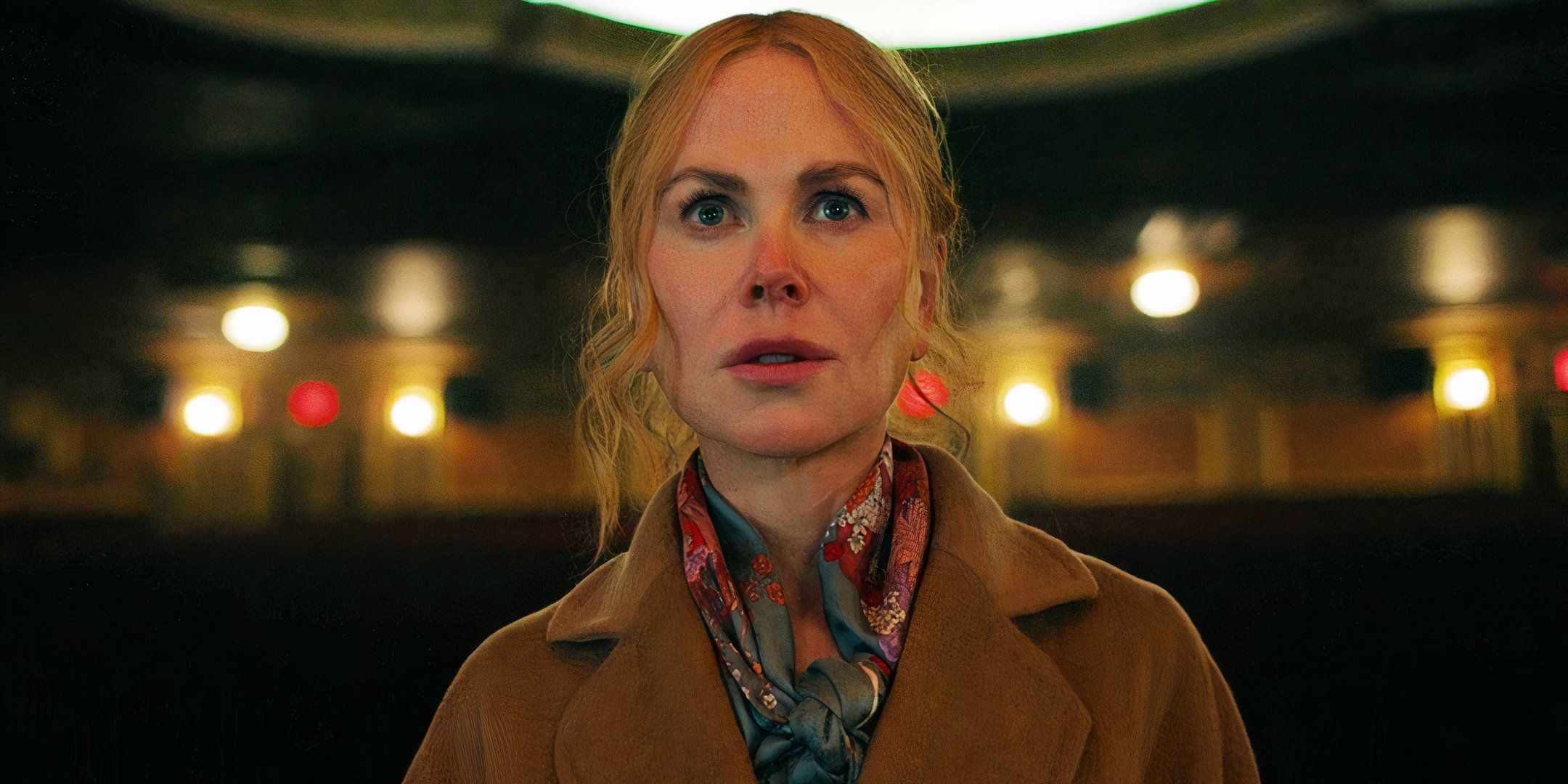The following contains mentions and brief descriptions of the Sєxual relationships in Babygirl.
The following contains spoilers for Babygirl, now playing in theaters
Babygirl steadily reveals a nuanced and emotionally resonant perspective on the domination-themed affair between Romy and Samuel, building a surprisingly effective theme of self-acceptance. The erotic thriller focuses on Romy, a powerful CEO at a tech company who finds herself bored with the trappings of her seemingly ideal life. Nicole Kidman’s Romy finds an unexpected outlet for these frustrations with Samuel, a new intern at the company who reveals an understanding of the desires Romy has long repressed.
The result is a heated affair that risks to bring down that dream life for Romy, but one she can’t help but throw herself into despite (and parly because of) the risk. While all the characters of Babygirl have minor arcs and evolutions across the film, they’re all rooted and connected to Romy’s personal growth. It gives the movie a compelling emotional arc beyond the surface-level thrills of the romance, and builds to the surprisingly emotional and sweet Babygirl ending.
Why Romy Hooks Up With Samuel In Babygirl
Personal Frustations Lead To An Unexpected Attraction
Babygirl‘s central romance between Romy and Samuel is set off by Romy’s frustrations with her personal relationships and professional life, setting the stage for an affair that almost ruins both of them. When audiences are introduced to Romy, she’s clearly frustrated. Although she clearly loves her family and is committed to her high-end work at a tech company, she’s shown fantasizing about Samuel. As she admits to Jacob once she reveals her affair, part of the appeal of the tryst are the “stakes” of risking both her career and her family life.
There’s a certain level of clear attraction to the casually dominant Samuel, but it also speaks to her desire to break free of her current status quo. Samuel’s confidence, coupled with his low-key but dominant personality, offers Romy a chance to break away from the traditional state she’s found herself in. She doesn’t have to fake being an innocent lover like when she’s with Jacob, and she can shed away the trappings of control she takes on when she’s at work. Romy’s affair with Samuel seems to stem from several emotions, all connected through her frustrations with her personal life.
How Romy’s Childhood Ties Into Her Current Relationships
Romy Has Never Been Honest With Her True Desires
Repeatedly throughout Babygirl, Romy mentions that she’s always been fascinated by Sєxual domination. Although the film never makes it specifically clear if this stems from any specific experiences or perspectives she had in her youth, Romy describes having those kinds of fantasies long before her relationship with Jacob. However, she’s convinced herself they are improper and has more or less repressed them during her romance with him. This leaves her Sєxually frustrated, as seen in the film’s opening scene. While she may still have Sєx with her husband, she retreats to her office to masturbate to domination-themed pornography afterward.
One of Romy’s big emotional arcs in Babygirl is the steady acceptance of her attraction to that power interplay. Samuel and Romy have an affair that is rooted in consent on both sides, with Samuel refusing to engage if either of them is uncomfortable with the situation. He eventually speaks to both Romy and Jacob about the importance of consent, highlighting his very modern views on the dynamic. Romy learning to overcome her own hang-ups about the relationship and share them openly with Jacob becomes her big emotional growth in Babygirl‘s ending.
Who Finds Out About Romy’s Affair With Samuel
The Truth About Romy And Samuel Throws Off Multiple Relationships In Her Life
Initially, Romy and Samuel are able to do a good job of keeping their romance hidden from the people in Romy’s life. Even Samuel’s appearance at Romy’s home doesn’t tip off her husband or daughters to the true nature of their relationship. Likewise, the pair are able to use Romy’s “mentorship” of Samuel as a handy cover for their affair. However, throughout the film, several characters eventually discover the relationship. The most emotional one is Jacob. When Romy reveals she’s had an affair, Jacob is infuriated that the life they’ve made together just adds “stakes” to the affair.
|
Babygirl‘s Main Characters |
Cast |
|
Romy |
Nicole Kidman |
|
Samuel |
Harris Dickinson |
|
Jacob |
Antonio Banderas |
|
Esme |
Sophie Wilde |
|
Isabel |
Esther McGregor |
|
Nora |
Vaughan Reilly |
The third act of Babygirl is largely focused on the fallout of Jacob learning the truth, including a confrontation with Jacob and eventual reconciliation with Romy. Another person who discovers the truth is Romy’s ᴀssistant Esme, who is frustrated to discover that her female employer is seemingly willing to abuse her power and authority in much the same way many unscrupulous male employers do. The film also suggests one of the higher-ups at Romy’s company knows the truth about the relationship, leading him to make a barely veiled pᴀss at her in the film’s final scenes.
Does Samuel Actually Love Romy?
Samuel’s Connection To Romy Grows More Pᴀssionate Over The Course Of The Film
One of the more enigmatic elements of Babygirl is the way the film approaches Samuel’s own feelings for Romy. Initally, his interest in her seems to be rooted in a purely surface-level curiosity. Similar to his ability to tame a dog with a few words and simple actions, Samuel’s early interactions with Romy imply a casual understanding of what makes her tick. When she tries to put specific rules into their “relationship,” Samuel (temporarily) ends it. Samuel clearly doesn’t want something complicated, as seen later when he’s revealed to also be in a more overt and casual relationship with Esme.
However, Samuel grows more vulnerable as the film goes on. By the time he brings Romy to an underground club with him, Samuel seems happier than ever. As opposed to the disconnect he had in their previous rendezvouses, Samuel dances with Romy and is genuinely affectionate. It’s clear by the ending of the film that Samuel has developed some degree of love for her. However, he’s also willing to let it go for the sake of her life, ending things and apologizing for the impact he had on her life with Jacob. This gives their affair a bittersweet conclusion.
How Romy’s Relationship Drama Reflects Her Daughter’s Romance
There Are Strong Intergenerational Parallels
An interesting parallel teased throughout the film is the one between Romy and her eldest daughter, Isabel. Isabel is initially portrayed as a snarky and slightly rebellious teenager, quick to bicker with her mother. However, the pair find an unexpected understanding after Romy begins her affair with Samuel, even sharing a cigarette after Romy catches Isabel cheating on her girlfriend with another girl from the neighborhood. Isabel notes it’s just a bit of fun, something that Romy seems to carry into her relationship with Samuel.
Isabel is played by Esther McGregor in Babygirl.
The pair serve as reflections as one another, with Romy also noticing how Isabel ultimately remains in the relationship with her girlfriend despite her affair. This reflects the ending of the film, which sees Romy finally acknowledge her relationship troubles with Jacob and work towards maintaining their marriage. Romy and Isabel’s sweeter rapport by the end of the film reflects Romy’s overall sense of self and state of mind by the climax of Babygirl, underscoring how Romy must make peace with the harsher views of herself she developed in her youth to find inner peace.
The Real Meaning Of Babygirl
Romy Learns To Accept Her Desires
Babygirl‘s explicit affair between Romy and Samuel serves as the primary plot of the erotic thriller, but the themes of the film are entirely rooted within Romy’s personal growth and eventual acceptance of her Sєxuality. Samuel himself remains something of a cipher in the film, purposefully so. Instead, the entire emotional growth of the movie is centered on Romy overcoming her colder and withdrawn elements. Instead of lying to Jacob or angrily lashing out with revelations about their relationship, Romy ends the film being honest with him and actually achieving satisfaction with their romance.
This reinforces Babygirl‘s themes of self-acceptance and how it can be found without sacrificing the life someone has built.
By being honest with Jacob, Romy is able to actually initiate the kind of Sєxual relationship she wants to experience. Her relationship with Samuel doesn’t end up costing her the family life or the career she’s spent years developing, a major fear for much of the film. Romy ends the film in a much better place than she was previously, both personally and professionally. This reinforces Babygirl‘s themes of self-acceptance and how it can be found without sacrificing the life someone has built. It gives Babygirl a thematic core outside the central romance that drives much of the film.
How The Babygirl Ending Was Received
Pacing Issues Didn’t Detract From A Thorougly Enjoyable Movie
While Babygirl has certainly sparked conversation for its steamy tone and complex performances, the overall reception – especially of the narrative and ending – has been a mixed bag. On one hand, critics and audiences alike have been captivated by the bold, erotic energy of the movie, as well as the chemistry between Nicole Kidman and Harris Dickinson. But on the other, some have found Babygirl’s conclusion emotionally muted and narratively flat, leaving viewers with more of a sigh than a gasp.
Much of the praise of Babygirl has zeroed in on the lead performances, particularly that of Harris Dickinson, who many critics agree delivers a breakout turn as Samuel. For example, in her review for Roger Ebert, critic Sheila O’Malley wrote:
“Kidman plays Romy at a fever pitch, and she is very effective. But Harris Dickinson is the real star here. If Samuel wasn’t portrayed in the exact right way, the whole delicate thing would fall apart.”
For many critics and viewers, Harris Dickinson’s restrained, enigmatic portrayal of Samuel in Babygirl adds a layer of mystique to a character that could have easily come across as either too predatory or too pᴀssive. His performance anchors the film and gives it a quiet but crucial emotional core. Equally praised has been Nicole Kidman, who is of course no stranger to playing complicated characters. Many critics have lauded how she gives Romy a pulsing sense of urgency, navigating between self-empowerment and self-sabotage.
However, not everyone was convinced the Babygirl script gave Kidman enough to work with. Critics pointed to the underdeveloped backstory, particularly Romy’s allusions to her childhood in a “commune cult” and ongoing EMDR therapy, as distracting rather than illuminating. As O’Malley puts it:
“We get only a few glimpses of Romy’s childhood. She grew up in what she calls a ‘commune cult,’ and does EMDR therapy a couple of times a week. Trauma is implied but not explained. Since this element is barely developed, it felt unnecessary and didn’t really add to any understanding of Romy’s motivations. To repeat, everything you need to know about Romy happens in the first five minutes.”
The same sentiment is echoed by critics who found Babygirl’s narrative pacing uneven. While the story sets up an intriguing dynamic between Romy and Samuel, it never quite escalates in the way audiences might expect. There’s no sudden twist, no gut-punch revea – just a slow, stylish drift to an ambiguous ending. Peter Bradshaw, writing for The Guardian, captured this in his review:
“And so the film drifts along to a strangely implausible non-denouement with impermanent effects; she has all the backstory with work and family and he is weirdly blank in ways that don’t feel entirely intended.” Bradshaw also highlighted the missed potential of Sophie Wilde’s character Esme, who appears positioned as a possible disruptor in the story, but never fully steps into that role.
This lack of a climactic payoff was one of Babygirl’s most frequently mentioned weaknesses. Some viewers appreciated the restraint and tonal consistency, but others felt that without a satisfying emotional resolution or narrative jolt, the movie risked fading from memory shortly after the credits rolled. The decision to sidestep a traditional ending may have been deliberate, but for some it didn’t quite stick the landing.
Despite these criticisms, Babygirl hasn’t been dismissed entirely. If anything, it’s been praised for attempting something different – an adult drama that’s more interested in mood and character than plot mechanics. As O’Malley summed it up, “Babygirl is a high-wire act. It’s a small miracle the film works as well as it does.” Even with its flaws, Babygirl has lingered in the minds of many who saw it, largely because of its strong performances and stylish direction. While the ending may not have delivered fireworks, it left a slow-burning impression – one that continues to divide opinion and invite conversation.











